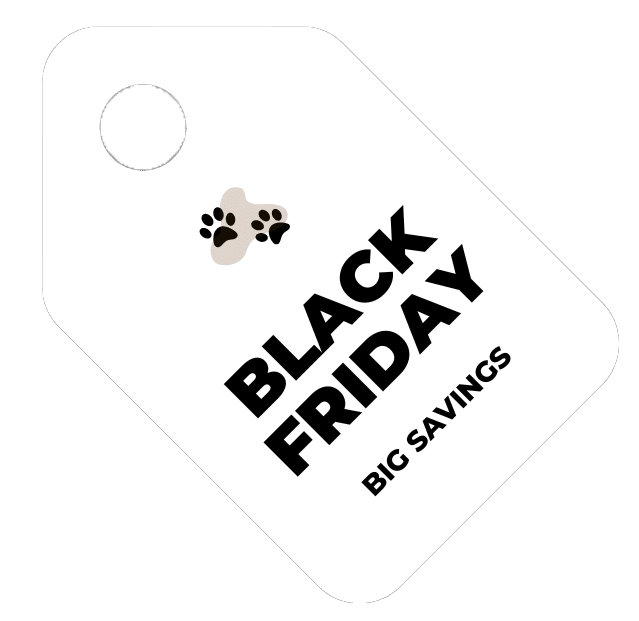It’s a scary situation when your dog won’t eat, especially because they communicate why they don’t want to, as normal, scarf down their food. There are a number of causes for loss of appetite in your dog or puppy, and it’s important to determine the reason behind the problem.
The first thing you need to remember, is how you’re measuring your dog’s eating habits. You may be concerned that your dog isn’t eating enough by reading the amount guidelines on a dog food package you’ve purchased; but keep in mind that these are only averages. It’s perfectly normal if a dog doesn’t eat the amount shown on the package, but if he’s not eating at all, you may have a bigger problem on your hands.
Anorexia nervosa, as it’s known in humans, is an eating disorder in which the person suffers from extreme weight loss due to self-starvation. Anorexia, also known as inappetence, is different from the human form, in that dog anorexia is a complete loss of appetite, not from self-starvation. It’s in a dog’s nature to eat consistently.
If your dog isn’t eating, the first step of action you need to take is visiting the vet, as he could be suffering from an underlying illness. It’s incredibly important to find out the cause of your dog’s loss of appetite promptly. Read on to find out other problems that may be affecting your dog’s hunger.
Reasons Why Your Dog Won’t Eat
Similar to humans, there are a number of reasons dogs may not be eating. This includes:
Your Dog Might Have an Illness
Illness is the most common reason why dogs don’t eat. A decreased appetite is most likely a sign of sickness, especially if your dog shows other signs of sickness as well, such as lethargy, overt shedding, or excessive bloating. While a lowered appetite doesn’t necessarily mean that your dog has a serious virus or disease, it could be signs of severe illnesses, like cancer, systemic infections, dental disease, stomach pains, or liver and kidney failure. You simply won’t know what’s wrong with fido until you get the opinion of a trusted veterinarian.
He may also just have an upset stomach. If you’re a dog owner, you undoubtedly know that dogs will eat almost anything (including their own feces!), especially if it’s dirty, smelly and gross. Temporary gastrointestinal upset could be the cause of your dog’s lack of appetite. Whether he got in the trash or brought home a dead, rotting squirrel, your dog’s body will naturally try to expel whatever it is he has eaten that’s upset his digestion. Signs for gastrointestinal upset include diarrhea, vomiting and decreased appetite. Inspect his stool and vomit for blood, and ensure that he is drinking plenty of water to stay hydrated. If you see blood or if the vomiting and diarrhea lasts for more than 24 hours, visit a vet for a proper diagnosis.
Did your Dog Recently Receive a Vaccination?
While vaccinations are a blessing to both humans and dogs, saving millions of lives by keeping contagious diseases at bay, these injections can sometimes have adverse effects. After a vaccine, it’s normal for your dog to have a decreased appetite for one or two days. If, after that amount of time your dog isn’t back to his normal spunky and hungry self, visit your vet to ensure that nothing went wrong with the shot. If your dog won’t eat his food, try something a little more tasty, such as fruit, canned food, fruit, yogurt, rice, or chicken. Overall however, the majority of vaccination symptoms are minor and brief, and should be closely monitored and treated if they last longer than normal.
Change in the Normal Routine
Dogs are creatures of habit, there’s no doubt about it. So, if you happen to take a trip somewhere with your four-legged friend, move to a different house or even add a new family member, the change may have an effect on your dog’s appetite. Since dogs like routine, anything that seems unfamiliar to them can cause stress and a temporary decrease in appetite, at least until they feel secure again. To combat this, you should try to make any changes in your dog’s life as gradual as possible. This will make him much more comfortable when the big shifts happen.
Bad Menu Choices
The food you give to your dog may actually be what’s causing his decreased appetite. Think about your own feelings when you’re expecting a steak and you get salad – pretty bummed, right? The dog has the same thought process. Chesapeake Veterinary Clinic has some wise suggestions to combat unappealing dog food: “Improve the mixture’s smell and taste by dashing it with some warm water. Or, get your vet’s approval to add a tablespoon of warm canned food to your dog’s dry blend. Don’t overheat that extra ingredient, as you want to avoid burning your dog’s sensitive mouth.”
Your Dog Might Have Behavioral Problems
If you have multiple dogs in your home, one may be more aggressive and/or dominant over the other one. It’s common for dominant dogs to steal submissive dogs’ meals. Also, dogs can be very picky eaters – they may like to enjoy their meal alone with peace and quiet. If you have multiple dogs, consider feeding the separately in different rooms or at different times. Dogs are much more likely to eat when they are left alone with their food and don’t feel an existential threat.





